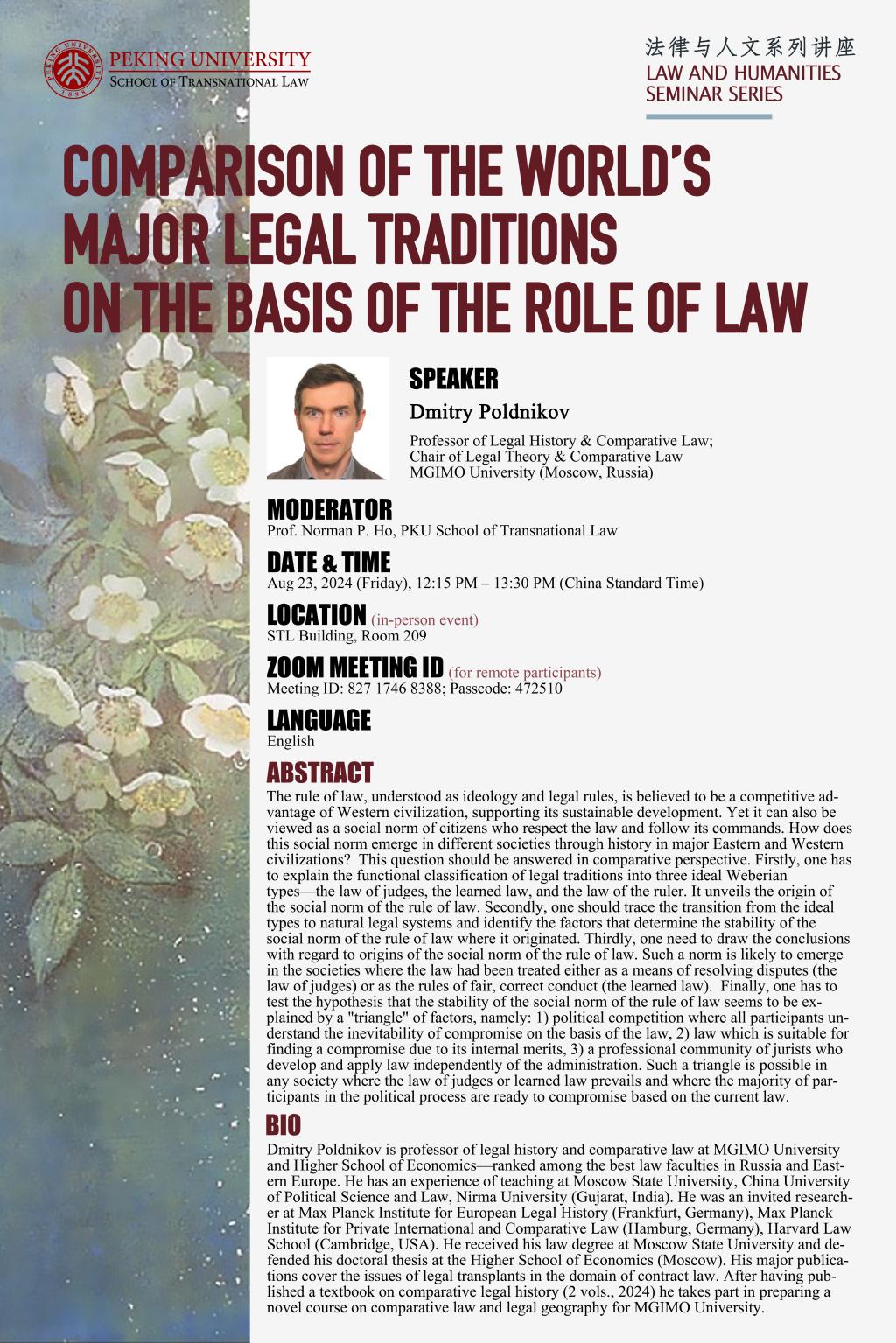Comparison of the World’s Major Legal Traditions on the Basis of the Role of Law
Speaker: Dmitry Poldnikov,professor of legal history and comparative law at MGIMO University and Higher School of Economics
Moderator: Norman P. Ho, Professor of Law at STL
Date & Time: August 23 (Friday) 12:15 - 13:30 (China Standard Time)
ZOOM Meeting ID:827 1746 8388 (Password: 472510)
Language: English
Abstract:
The rule of law, understood as ideology and legal rules, is believed to be a competitive advantage of Western civilization, supporting its sustainable development. Yet it can also be viewed as a social norm of citizens who respect the law and follow its commands. How does this social norm emerge in different societies through history in major Eastern and Western civilizations? This question should be answered in comparative perspective. Firstly, one has to explain the functional classification of legal traditions into three ideal Weberian types—the law of judges, the learned law, and the law of the ruler. It unveils the origin of the social norm of the rule of law. Secondly, one should trace the transition from the ideal types to natural legal systems and identify the factors that determine the stability of the social norm of the rule of law where it originated. Thirdly, one need to draw the conclusions with regard to origins of the social norm of the rule of law. Such a norm is likely to emerge in the societies where the law had been treated either as a means of resolving disputes (the law of judges) or as the rules of fair, correct conduct (the learned law). Finally, one has to test the hypothesis that the stability of the social norm of the rule of law seems to be explained by a "triangle" of factors, namely: 1) political competition where all participants understand the inevitability of compromise on the basis of the law, 2) law which is suitable for finding a compromise due to its internal merits, 3) a professional community of jurists who develop and apply law independently of the administration. Such a triangle is possible in any society where the law of judges or learned law prevails and where the majority of participants in the political process are ready to compromise based on the current law.
BIO:
Dmitry Poldnikov is professor of legal history and comparative law at MGIMO University and Higher School of Economics—ranked among the best law faculties in Russia and Eastern Europe. He has an experience of teaching at Moscow State University, China University of Political Science and Law, Nirma University (Gujarat, India). He was an invited researcher at Max Planck Institute for European Legal History (Frankfurt, Germany), Max Planck Institute for Private International and Comparative Law (Hamburg, Germany), Harvard Law School (Cambridge, USA). He received his law degree at Moscow State University and defended his doctoral thesis at the Higher School of Economics (Moscow). His major publications cover the issues of legal transplants in the domain of contract law. After having published a textbook on comparative legal history (2 vols., 2024) he takes part in preparing a novel course on comparative law and legal geography for MGIMO University.
